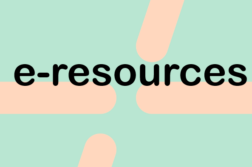The April reading tips have been inspired by the annual FRUSH event, which focuses on responsible business and future-shaping innovations and strategies. This year, the Forssa event will be held on the 23rd and 24th of April.
The following five books approach corporate responsibility from different perspectives. More reading tips on responsible business can be found in the reading list compiled by the library.
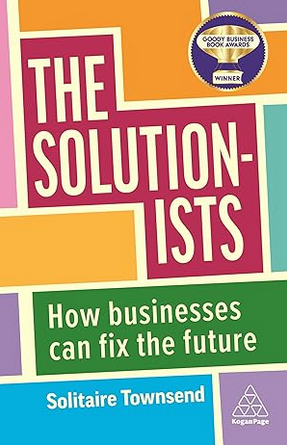 Townsend, S. (2023). The solutionists: how businesses can fix the future. Kogan Page Limited. Townsend, S. (2023). The solutionists: how businesses can fix the future. Kogan Page Limited.
Townsend has written a guidebook for all who want to build a more sustainable future. The Solutionists explores the skills, strategies and ways of thinking that the new generation of entrepreneurs will need. Through inspiring stories, Townsend shows how to solve the climate crisis while promoting innovation and company growth. |
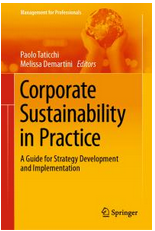 Taticchi, P., & Demartini, M. (2021). Corporate sustainability in practice: a guide for strategy development and implementation. Springer. Taticchi, P., & Demartini, M. (2021). Corporate sustainability in practice: a guide for strategy development and implementation. Springer.
Here is a book that offers practical tools that can be used to develop and implement business sustainability strategies. Editors have organized the book into three sections: the first discusses the environmental and social issues that affect business strategies. In the second section, authors provide a framework for corporate sustainability. The third and final section focuses on systems theory and discusses the concepts and tools needed for a corporate sustainability strategy. |
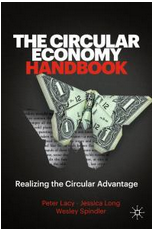 Lacy, P., Long, J., & Spindler, W. (2020). The circular economy handbook: realizing the circular advantage. Palgrave Macmillan. Lacy, P., Long, J., & Spindler, W. (2020). The circular economy handbook: realizing the circular advantage. Palgrave Macmillan.
This book explores how businesses can align growth with sustainability by embracing the circular economy. As the world faces pressing environmental and social challenges, traditional “take, make, waste” models are no longer viable. The authors argue for a shift to circular systems that reduce resource use and environmental impact while enhancing innovation and competitiveness. They provide practical guidance, case studies, and strategies to help organizations scale circular solutions, transform value chains, and lead systemic change toward a more sustainable future. |
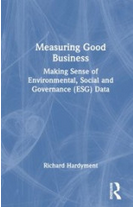 Hardyment, R. (2024). Measuring good business: making sense of environmental, social and governance (ESG) data. Routledge. Hardyment, R. (2024). Measuring good business: making sense of environmental, social and governance (ESG) data. Routledge.
Measuring Good Business explores the rise of Environmental, Social, and Governance (ESG) investing and questions the reliability and impact of the data driving it. As ESG gains influence in business and finance, the book examines whether current metrics truly reflect progress for people and the planet. It offers a critical look at what can—and cannot—be measured, and proposes a new approach based on inclusive, context-driven, and investor-focused data. Combining practical insights with accessible storytelling, it serves as a guide for improving ESG measurement and making sustainable business efforts more effective and meaningful. |
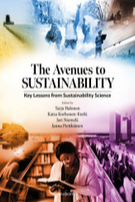 Halonen, T., Korhonen-Kurki, K., Pietikäinen, J., Niemelä, J. & Lintuvaara, S. (2024). The avenues to sustainability: Key lessons from sustainability science. Gaudeamus. Halonen, T., Korhonen-Kurki, K., Pietikäinen, J., Niemelä, J. & Lintuvaara, S. (2024). The avenues to sustainability: Key lessons from sustainability science. Gaudeamus.
In this post-truth age, the last place in the five reading tips goes to a book describing the discipline that emerged at the beginning of this millennium, sustainability science. The starting point of sustainability science is an understanding of the interaction between society and the environment in terms of the whole system. This book explores the theories and means of sustainability science, as well as the wickedness, or complexity, of sustainability. The theory has been supplemented with practical examples. |
Image: Adobe Stock



